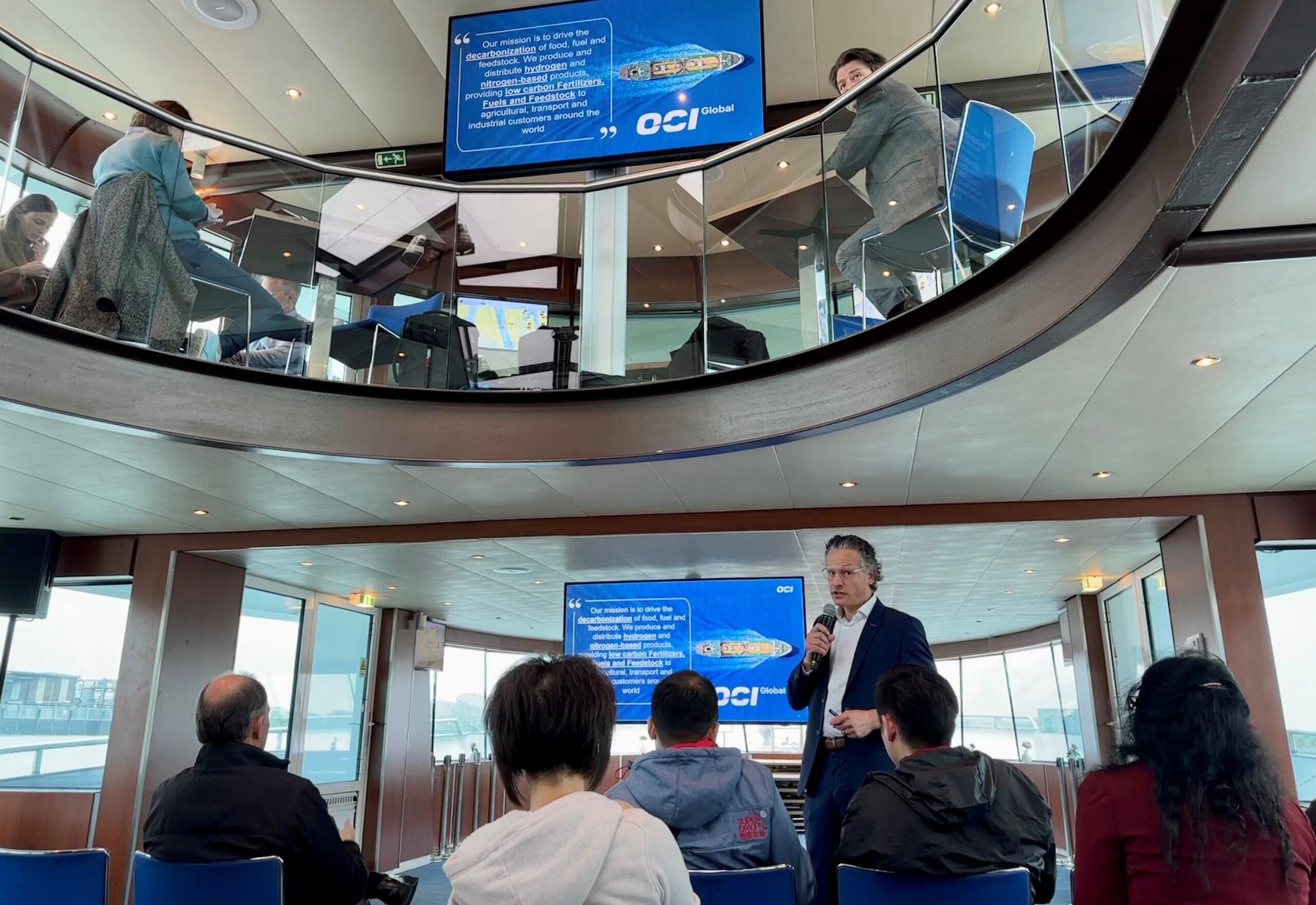Partnership is crucial to navigating any period of transition, but with the unique challenge posed by climate change, the need for collaboration towards the energy transition has never been more urgent.
The development of an effective global hydrogen economy will be key to making real progress in the energy transition. The World Hydrogen Summit in Rotterdam last week brought OCI together with other changemakers from industry, business and politics to demonstrate practical solutions, share learnings, and discuss what more needs to be done.
Our three key takeaways for what’s needed to kickstart the global hydrogen economy are:
- Create a groundswell of first movers
As one of the few companies in the world with both ammonia and methanol production, OCI Global has a strong position and responsibility to be a driving force in the energy transition. We have a robust track record in being a first-mover, and are already investing in exciting projects all over the world, including building the first and only green hydrogen project in Africa – Egypt Green – which has produced and exported the first green ammonia in Egypt, and is one of the first ISCC Plus certified producers in the region.
However, for the hydrogen economy to develop effectively, we need businesses across the value chain to join us. That means being willing to take final investment decisions (FIDs) at the same time so the whole chain will be ready to produce, offtake, transport and apply hydrogen at the same time.
- Governments must take action: Carrot and stick
The hydrogen market is still in its infancy, and there are regulatory risks and market uncertainties to contend with. The Hydrogen Council’s Hydrogen Insights 2030 study showed that less than 10% of the more than 1,000 renewable and low-carbon hydrogen projects that have been announced globally have reached FID. To encourage first movers, investment and progress in the wider industry, governments and regulators must take the lead in de-risking the value chain through a combination of incentivization and regulation.
A good example of this in practice is the US’s Inflation Reduction Act (IRA) which marked a paradigm shift in the hydrogen economy and has encouraged businesses like ours to invest in the region. Last year we reached final investment decision on our 1.1 mtpa blue ammonia plant in Beaumont, Texas, where, with clean hydrogen supplied by Linde, we will reduce emissions by more than 70% on a life cycle basis compared to conventional ammonia production.
Europe now needs a strong response that is simple, scalable and regional. We welcome the ‘Fit for 55’ package proposals, including the FuelEU Maritime regulation, which will drive the uptake of cleaner fuels such as green methanol, and carbon border adjustment mechanism (CBAM), but the EU needs to go further. Collaboration between industry and government is important in making this happen. We’re proud to be working with the Dutch Government to come to a tailormade agreement on reducing emissions on our Dutch production sites, but a bolder response is urgently needed to ensure a level global playing field and the uplift in both supply and demand to create a thriving market for cleaner solutions.
- Prepare trade infrastructure
Transport is a key enabler for a truly global hydrogen economy. Once we have created the supply and demand, the key question is transporting hydrogen and hydrogen products, so it was fitting that the summit was held in Rotterdam, home Europe’s largest port. Joining a roundtable on Egypt and the Netherlands on Green Hydrogen organized by the Climate and Energy Response Facility (CERF), we heard from the Mayor of the Port of Rotterdam who highlighted the need for prepared trading infrastructure to make the global hydrogen economy a reality.
Infrastructure readiness depends on several factors, including the investment from businesses in the necessary infrastructure for hydrogen trade. In the Port of Rotterdam, OCI has the only ammonia terminal and works across the value chain to distribute ammonia safely across Europe. We are also in the middle of an expansion project to triple our throughput here, which is expected to complete next year.
Accelerate moving from announcements to action
The World Hydrogen Summit was an important opportunity to come together and have open conversations with people involved from all sides in building the hydrogen ecosystem of the future. What was clear is that much more needs to be done to build a hydrogen economy capable of delivering the energy transition, and that that progress needs to be led by decisive action from governments and regulators. Collaboration will be crucial in this, but with OCI and other early movers already taking steps to act together, and with the right support from governments, we can create the hydrogen ecosystem to power a cleaner future sooner.


